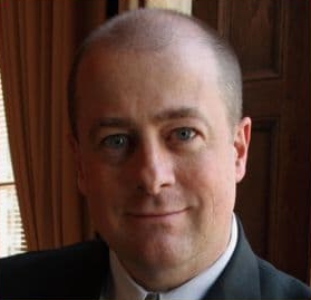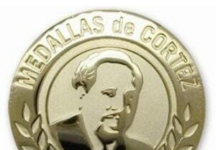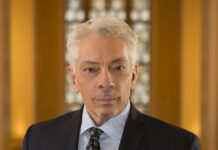
(By Tom Langmeyer) The unfortunate conventional wisdom that has prevailed in radio during the last 20 years is “We are a music station. We don’t do news.” Unfortunately, this sentiment represents many people who set the tone for the industry and make these proclamations proudly, as the radio business becomes more and more irrelevant.
There is some truth to the statement that a “music station should not be covering news” by those who think completely linearly. However that culturally process-driven approach that has zero to do with results.
A music-intensive radio station is not expected to do news in the traditional sense, nor should be competing with news stations. It’s not a music station’s role.
However, all radio stations must have a component of “news. Now, before folding your arms across your chest, think about it this way.
“News” is really what your listeners need and want in the radio experience. What does “news” mean for your station? What is it? How is it delivered? How much? How do we activate our listener? That’s where things are different and need to be defined.
Think about a great country station that’s talking about a concert that’s happening in town and building an experience around it. That’s NEWS.
No one is saying a music station should be WINS, WBBM, KNX or KCBS.
No matter the music format is, there needs to be a playbook for how and what information (relevant “news”) gets presented.
On the advising side of Great Lakes Media’s business, we create customized plans for stations committed to localism and winning on the revenue hill. Sure it’s different – and that’s why it works.
It’s called the “Great Lakes Media Way.”
Frankly, in places we work, there is always an initial level of pushback, then a cultural change occurs followed by noteworthy success. It takes courage to lead and to win, because “It’s different.
The overused statement, “It’s not the way we have done things here in the past,” is killing the industry. That’s because the second part of the statement is missing: “We have a lack of listener passion for the station, watch revenue fritter away. Our excuse is that no one cares and everyone has a smart phone, anyway. Corporate didn’t tell us what to do. An irrelevant jukebox is the way we’ve always done things here in the past.”
In the case of WECK, it’s not a an “oldies jukebox.” The BIG WECK is a “LOCAL EXPERIENCE” that includes lots of great oldies.
That’s the difference.
When this horrible event occurred, we immediately activated and set forth to activate our plan for our kind of station.
That means, tell people what happened. Give them basic information so they know you can be trusted and that you have their back.
If the station is relevant, that means that when something of this magnitude happens, you say something right away. You tell people what happened.
At that point, you’ve actually done a service for your listeners. It’s surprising how many people went through the day with no clue that this had happened.
Here’s the part that might seem counterintuitive, but it’s not: Listeners will go to elsewhere to seek out information of greater detail from sources. They should and we must tell them.
In this industry, some stations run 20 minutes of commercials an hour telling people to do something that has nothing to do to listening to our station. If somebody needs to get information on something of this magnitude, we need to make sure that we send them to our media partner who provides in-depth coverage if they want it.
A music station that’s responsible as a broadcaster will get those listeners back and they will be more loyal, knowing that if something happens, the station won’t hide it and pretend things didn’t happen so somebody can hear one more song. Music radio can be a great escape and a great experience for people, but that means sometimes you just have to tell them “This just happened and you need to know it.”
After initially informing people that something horrible has happened, a great local musically-formatted radio station, will shift into a different kind of mode of “covering news” after the initial communication.
Part two is in what ways might we lead in helping people? Can we activate and engage and activate the community through a fundraiser, or a community-based vigil? Can we tell stories of people that did heroic and good things? Can we be a place of comfort? Can we help the families of the victims?
That’s how a Great Lakes Media-advised station approaches “news” on a music station. This is what happens and happened at Buddy Shula-owned WECK. He is a great broadcaster who believes in Localism. Here’s what we do and suggest others do:
1. Have a “manager on-call” and rotate that duty. That means, ALWAYS having somebody, who will be plugged in, particularly during “off-times” so others can enjoy unplugging. Whether it was WGN in Chicago, an FM music station in Milwaukee or a small town radio station, I have always had somebody “on-call” to make important decisions in-real-time, when things happen. The on-call person can live their life like anybody else, but just has to be plugged-in to the world, during that time.
2. In a critical situation, that’s when a group text from the lead informs all on the team and provides direction and directions. I immediately did that for WECK – and Glenn Topolski, the station’s program director, put the initial information on the air. We also worked with our partner station, WGRZ (TV) to get live feeds of the initial story.
3. There are also things that need to be decided upon by those in charge of programming, sales and engineering, regardless of whether if the station is tracked or not. All of the leadership team needs to be informed immediately, as well as the staff.
4. The level and amount of coverage is led by the designated leader.
5. If the station happens to be tracked at the time, there still should be somebody who has a means to get on the air from anywhere. The team at WECK, including me, have a means to get on the air at any time from any place. Glenn Topolski and I spoke immediately after this event occurred. Glenn was at home and was able to get information on the air right away for the stations listeners. With the tools we have today including smart phones, we can get this information on from anywhere and it doesn’t necessarily need to be from a home studio or in the building.
6. We discussed the actual “tone” and imaging of the station along with the tactical things we needed to get done and adjust, right away. Are there spots that need to be taken off the air per the instruction of the sales manager? What changes does the traffic manager need to make right away? What songs do we need to pull off the air? How are we going to inform our listeners? How do we direct people to get further information? Are our digital elements informing and directing as the resources they need to be?
7. What is our plan, since we aren’t a news station, to be able to best serve the community?
Radio has unfortunately been misled by making everything about “utilities we no longer can mention or discuss. Radio is a companion and a friend. Radio is personal. In an unfortunate “world of no” by people who lead the business, anything that’s available via smart phone has become off-limits for radio. That’s wrong:
Don’t talk about the weather, because you can get that on your phone. Don’t update a baseball score on the air because you can get that on your phone or someone will tune away from you. Never give the time, because you can get that on your phone. Don’t talk about things in the community, because you can get that on your phone. Don’t give traffic information or talk about or mention a big traffic tie up, because you can get that on your phone. Don’t talk about the artist, because you can get that on your phone. Don’t be topical or mention anything in your community, because then the voice track that you have done to air on 50 other stations won’t work.
This has taken the companionship out of radio. We need to reinstall real companionship. Radio must be more than a jukebox. There are better music utilities out there. Radio is fundamentally a local business. It’s one of companionship.
At this point in our world, there is a stronger need for better personal connection and companionship. Radio can and must provide it to survive. We can do this, but we need new thinking and leaders who have vision and can understand how we can regain our position as being a critical friend in peoples’ lives. We’ve lost it, but we can get it back.
It’s the biggest strength radio has, no matter what the format is. Unfortunately, literal thinking has created an industry full of tactical and literal thinkers about our role.
However, Radio is fundamentally a local business. If it’s not, it is completely unnecessary as there are other distribution platforms meant to receive a better utility playlist without a bunch of commercials or anything in between. It’s the same for talk and news.
For WECK or any Great Lakes Media-advised station, it’s about Localism. Localism comes dressed in many different ways, depending on the format, but make no mistake, it’s all localism.
WECK is a 1,000-watt AM radio station on a graveyard frequency, with three translators, licensed to Cheektowaga, NY. Localism is what has taken a formerly low tiered station and moved it into the top 10 in a good-sized radio market. Incidentally, this independently-owned station beats a number 50,000 and 100,000 watt group-owned commercial FM stations.
Tom Langmyer
President & CEO
Great Lakes Media Acquisition & Advisory Group
[email protected]






This is great-and full of common sense solutions to problems that have surfaced since -well things like the elimination of the local studio rule, consolidation and employee purges. If the local market isn’t served by a station there’s little to no penalty. What Tom says is all so true and more relevant in 2022’s turbulent environment. WECK is a unique radio station in that the local staff, local ownership and local coaching efforts are economically solving radio’s biggest issues these days.
Well done WECK!! Excellent advice, covers the basics that are too often forgotten or ignored in 2922.